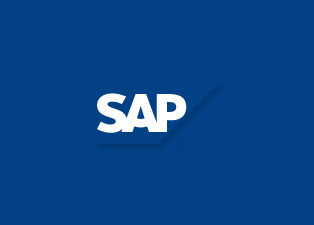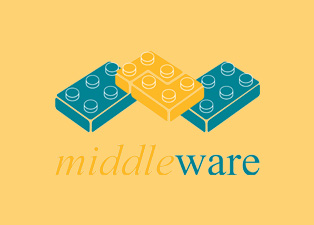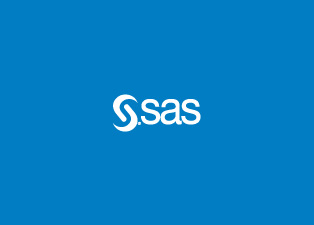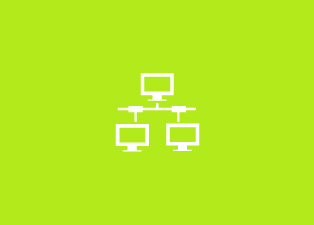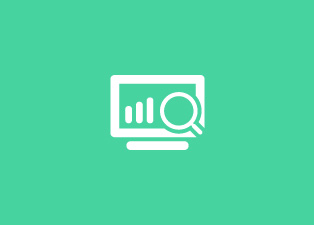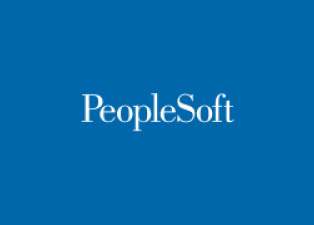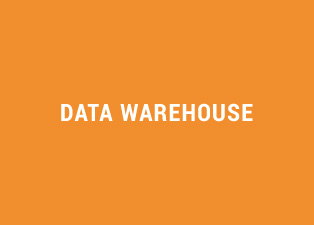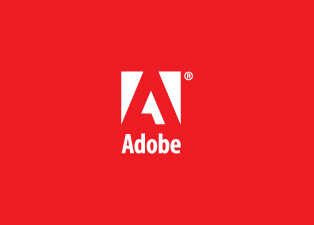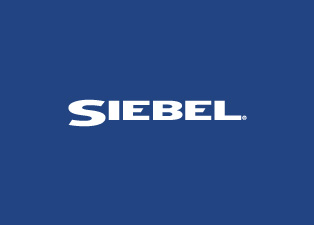Oracle E-Business Suite Online Training
Oracle E-Business Suite Online Training

Oracle E-Business Suite Online Training Course Content:
What is Oracle Financials?

Oracle Financials products provide organizations with solutions to a wide range of long- and short-term accounting system issues. Regardless of the size of the business, Oracle Financials can meet accounting management demands with:
Oracle Assets: Ensures that an organization’s property and equipment investment is accurate and that the correct asset tax accounting strategies are chosen.
Oracle General Ledger: Offers a complete solution to journal entry, budgeting, allocations, consolidation, and financial reporting needs.
Oracle Inventory: Helps an organization make better inventory decisions by minimizing stock and maximizing cash flow.
Oracle Order Management: Provides organizations with a sophisticated order entry system for managing customer commitments.
Oracle Payables: Lets an organization process more invoices with fewer staff members and tighter controls. Helps save money through maximum discounts, bank float, and prevention of duplicate payment.
Oracle Purchasing: Improves buying power, helps negotiate bigger discounts, eliminates paper flow, increases financial controls, and increases productivity.
Introduction to ERP
- Introduction to ERP
- What is Oracle Application/ E-Business suite
- Versions available in Oracle
- Versions available in Oracle Application
- What are major modules available in Oracle Application
- ERP’s available in the market
- Why Oracle application is so popular
- What Basically Implementation, up gradation & Support is?
- Overview of Implementation of Oracle Application
- Companies Implementing Oracle Application
- Hardware requirements for Oracle Application
Procure To pay Cycle
Order To Cash Cycle
Fixed Assets To General Ledger Cycle
Oracle General Ledger
- Introduction
- Calendars
- Flex Fields
- Accounting Flex Fields
- GL Ledger Flex Feilds
- Chart of accounts
- Account Setup Manager
- Define Legal Entity
- Define Ledgers
- Define Accounting Options
- Add Legal Entities to Ledgers
- Ledger Sets
- Definition Access Sets
- Auto Copy Journals
- Reversal Journals
- Manual Reversal
- Auto Reversal
- Suspense Journals
- Recurring Journals
- Standard
- Skeleton
- Formula
- Mass Allocation Journals
- Inter Company & Intra Company Journals
- Without Qualifying Method
- With Qualifying Method
- Reporting Currency Ledgers
- Balance Method
- Journal Method
- Sub Ledger Method
- Adjustment Only
- Revaluation Process
- Posting Method
- Manual
- Batch Posting
- Auto Posting
- About Security Rules
- About Cross Validation Rules
- Financial Statement Generator (FSG)
- Journal Approval Process
Oracle Purchasing
- MOAC Setups
- Define Locations
- Define Business Group
- Define Operating Units
- Define Security Profile
- Define HR Organization
- Define Security & User Access
- Define Purchasing Options
- Define Jobs
- Define Positions
- Define Employees
- Define Employee/Position Hierarchies’
- Define Buyers
- Define Approval Groups
- Approval Group Assignments
- Process Setup
- Define Master Item
- Create Requisition
- Define Suppliers
- Create Requisition ,RFQ, Quotations & Purchase Order
- Creating Receipts
- Self Billing Invoices (Auto Invoices)
- Create Document Style
- Create Complex Work Order
- Create Accounting
- Returns
- Receiving Option
- Copy Document
- Auto Create
- Close/Cancel PO Requisition
Oracle Payables Module
- MOAC Setup
- Define Financial Option
- Define Payable Options
- Invoice Work Bench
- Standard
- Debit Memo
- Credit Memo
- Mixed Invoices
- Pre Payments
- Retain Age Release
- Expenses Report
- With Holding Tax Invoices
- Interest Invoices
- Recurring Invoices
- Define Grants & Roles (User Management)
- Define Banks
- Define Branches
- Define Bank Accounts
- Define Payable Documents
- Define Organization Access
- Define Payables Controls
- Define Reconciliation Controls
- Payment Workbench
- Manual Payments
- Quick Payments
- Bills Receivables
- Refund Payments
- Holds
- Manual Hold
- System Hold
- Invoice Matching with P.O
- Quick Match (P.O)
- Corrections
- Payment Terms
- Distribution Set
- Full Type
- Skeleton
- Cancellation Of Invoice
Oracle Payments
- System Security Options
- XML Publisher Format Template
- Payment Format
- Payment Methods
- Payment Method Defaulting Methods
- Payment Process Profile
- Payment Manager
Fixed Assets
- Flex Fields
- Category Flex Fields
- Asset Key Flex Fields
- Locations Flex Fields
- Define System Controls
- Define Fiscal Years
- Define Calendars
- Depreciation Calendar
- Prorate Calendar
- Define Prorate Convention
- Define Depreciation Methods
- Define Asset Categories
- Define Asset Books
- Asset Additions
- Mass Addition
- Quick Addition
- Manual Addition
- Run Deprecation
- Mass Retirement
- Asset Revaluation
- Mass Changes
- Mass Transfer
- Asset Re-Classifications
- Create Accounting
- Tax Book
- Amortization and Cost Adjustment
- Split and Merge
- What If Analysis
- Projections
- CIP Assets
- Transferring Assets JE to GL
Receivables Module
- Introduction to Receivables
- MOAC Setups For Receivables
- Configuring System Options
- Introduction To TCA
- TCA Setups
- Customers
- Parties
- Organizations
- Relationships
- Auto Accounting
- Transaction Types
- Transaction Batch Sources
- Document Sequencing
- Transaction Work Bench
- Invoices
- Credit Memo
- Debit Memo
- Deposits
- Guarantee
- Chargeback
- Bills Receivables
- Receivables Activities
- Define Receipt Class
- Manual Receipts
- Receipt with Auto Cash Rule Sets
- Receivables transfer to General Ledger
EBT (Enterprise Business Taxes)
- Geography Codes
- Tax Regimes
- Taxes
- Tax Statuses
- Tax Jurisdiction
- Tax Rates
- Tax Rules
- Application Tax Options
- Configuration Tax Options
- Create Tax Party Profile
- Create Party Tax Profile For Third Parties
Sub Ledger Accounting Method (SLAM)
- Event Entities
- Event Classes
- Event Types
- Process Categories
- Sources
- Mapping Sets
- Journal Entry Description
- Journal Line Type
- Journal Line Definitions
- Application Accounting Definitions
- Sub Ledger Accounting Methods
- Customizing SLA
Cash Management
- MOAC for Cash Management
- Define System Parameters
- Manual Reconcilation
System Administration
- Define Application User
- Control Application User
- Assign Responsibility to the User
- Control Responsibility
- Setup Menu and Function
- Define Responsibility
- Update System Profile Options
- Define Concurrent Program
- Define Concurrent Program Executables
- Define User Define Application
Drop your query
Most Popular Courses
Achieve your career goal with industry recognised learning paths
What my Client's Say?
-
It was a great course over my expectations. I am eager to have another course wıth you as soon as possıble ~ R. Kamand
-
All in all, it was a very constructive and one in a lifetime experience. I'm so glad that I was part of it.~ T. Engin
-
It was the best decision I had ever made in my life. Although it was expensive for me, but I don't regret even for one second. ~ Maruti Malla
-
Thank you for this great course. I learned a lot of things, I met very nice people and I am happy that I had these 6 crazy weeks with you.".~ Najmul Shar A Baig
-
Very nice and friendly tutor and staff. The course was very fruitful, particularly the input sessions during the first half of it.~ Radha Nandyala
-
It was such great experience, though it was really intensive, it was worth doing it! Cant thank enough all team effort esp Mohan! .~ Rohan Kumar
-
The course was really good because it was a practical course.~ M.Radha patel
-
I liked this experience. Good tutor and nice mates. I will always remember it. ~ Jitu Bavaria
